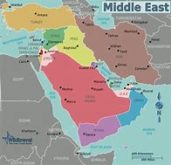iranintl – As opinion polls signal a potentially low turnout for the March parliamentary elections in Iran, many observers attribute it to widespread disqualification of candidates.
Reformist commentator Abbas Abdi, citing a poll by the ISPA agency, predicts that fewer than 15 percent of eligible voters in Tehran may participate in the March 1 election. He suggests a similar situation in other major cities. Abdi, writing in Tehran’s Etemad newspaper, emphasizes that while many expected a low turnout, ISPA’s poll offers a more precise estimate.
According to Abdi, the poll, which was conducted in face-to-face interviews with citizens all over Iran, showed that at least 28 percent of those who took part in it have said that they will “certainly not take part” in the elections. Another 7 percent have said that they will “most probably will not be participating.”
As an experienced pollster who has spent a year in jail previously for sharing data with US polling agency Gallop, Abdi argued that the 32 percent projected turnout, while a cautious estimate for a higher turnout, is still very low. Abdi suggested that unless the government’s policies change noticeably, this figure will likely decline before voting day. He pointed out that the 32 percent projection is based on the fact that 68 percent of eligible voters are uncertain about participating, and if details are revealed, only 7 to 10 percent of educated youth may turn up.
In another development reformist politician Mohammad Atrianfar told Khabar Online website in Tehran that biased and selective vetting of candidates has badly harmed the situation of elections in Iran.
This comes while conservative commentator Naser Imani who took part in an interview alongside Atrianfar said that the disqualification of 10 or 20 candidates cannot affect the fate of the elections. However, Imani’s figures underestimate the number of disqualified candidates as more than 40 incumbent members of the parliament and several reformist candidates are known to have been disqualified in the first phase of the vetting by the Interior Ministry.
Authorities offer no clear explanation about these disqualifications, which are widely seen as an attempt by a faction of hardliners to monopolize power.
Atrianfar said that the ambiguous situation surrounding an informal registration that was done within a very short period of time ahead of the official registration of candidates robbed many well-known politicians of the opportunity to make the right decision to run for the elections. He said both right-wing and left-wing parties have criticized the way the registration and the vetting has been done.
As a result, Atrianfar said, while usually one to two percent of those who had registered in the previous rounds of the elections were disqualified by the Interior Ministry, in this round the Ministry has disqualified between 25 to 28 percent of those who had registered.
Imani, on the other hand, said “what is likely to lead to a low turnout in the upcoming elections is the political despair that has emerged during recent years. This approach to elections has barred well-known political figures from running.” He said, “If it wasn’t for this mood of general despair, Mr. Atrianfar and I would have also registered to run for the Majles elections.”
 Shabtabnews In this dark night, I have lost my way – Arise from a corner, oh you the star of guidance.
Shabtabnews In this dark night, I have lost my way – Arise from a corner, oh you the star of guidance.



